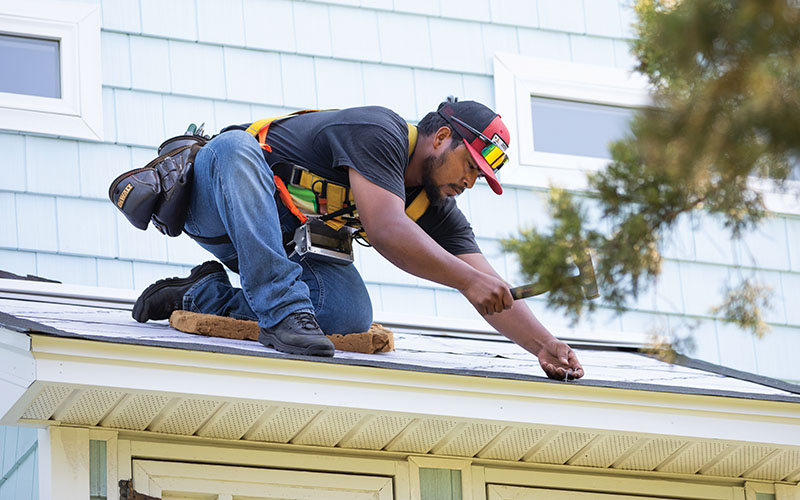During the process of shopping for a mortgage or refinancing an existing property, many consumers assume that the loan option with the lowest interest rate is automatically, and without question, the best loan choice. But you know what they say about making assumptions… it’s not a good idea… especially when dealing with a decision that can greatly impact your long-term financial position. Believe it or not, once you do the simple math, choosing the lowest interest rate on a mortgage or refinancing option is rarely the most cost effective decision.
While the same basic principals apply for both mortgages and refinancing, let’s start by focusing on mortgages for property purchases and explore the reason why agreeing to a higher rate may be a better option.
It’s all about the closing costs
Processing any mortgage involves third party services, and those services must be paid before each transaction can be finalized. There are basically three methods for paying these third party services:
1. The buyer can pay the fees out-of-pocket, right up front. This method is most commonly known as “paying closing costs”. Usually, buyers that pay closing costs as a lump sum up front do so in order to qualify for the lenders’ lowest rates.
2. Seller concessions may be offered to cover the closing costs, but ultimately you’re still financing the additional costs as part of your overall mortgage.
3. The buyer can agree to pay a slightly higher rate in exchange for a mortgage credit that covers the closing costs.
Most people choose option 1 or 2 in order to secure the lowest rate possible, but you may actually be able to get the house at a lower overall cost by choosing option 3 and accepting a slightly higher rate. I call option 3 “making money on the buy”. Let me give you a very basic example of how this works for clarification. Please keep in mind that this example is for illustration purposes only and does not represent all of the details of a mortgage transaction.
Let’s say you’ve found the house you want to buy. The first step is finding out the seller’s lowest final offer. For this example, let’s say that after all the negotiations the seller agrees to a purchase price of $150,000, plus, let’s say you owe $3,000 in closing costs bringing your total costs to $153,000. Now, let’s say that you qualify for a rate of 4.25% if you agree to pay the seller $150,000 and also bring another $3,000 to the closing table to pay the closing costs up front. Or, your lender offers to give you a $3,000 mortgage credit to cover the closing costs if you’ll agree to a rate of 4.5%. By choosing the higher rate option, you immediately save $3,000, and the additional quarter percentage point would only cost you about $21 per month. That means, if you chose to pay closing costs in order to get the lower 4.25% rate, it would take more than 10 years to break even with the $3,000 you would save by going with the 4.5% rate—and it would take even longer to break even if you invested that $3,000 wisely. Now, the duration of a mortgage averages only 5-7 years for various reasons, including:
• The house sold due to relocation, divorce, downsizing, upsizing etc.
• The mortgage is refinanced
• Shortening the amortization to improve equity position
• Leveraging the equity as property appreciates
The point is… the stated interest rate is only the true interest rate if the loan is maintained for the entire term. Life happens and things change—and most mortgages don’t even come close to lasting their entire term.
So, the question is, would you rather get a lower rate and pay thousands in closing costs up front, or take a slightly higher rate and pay a few bucks extra each month? If you understand the logic behind this philosophy, you’re probably wondering how to determine the line between accepting a higher rate and paying up front closing costs. There’s no definitive answer because everyone’s financial situation is different. But, as a general rule of thumb, I tell my clients if a lower rate + closing costs doesn’t break even with a higher rate + no closing costs in one year, then take the higher rate and the immediate savings of the closing costs. In an industry where change is the norm, choosing guaranteed up front savings is usually the safest, smartest bet.
The most important tidbit of information to take away from this article is to know you have options. Do your research and consult with an expert that can walk you through the various scenarios and help you make the best decision given your financial position and short and long term needs.
Patrick Stoy has 15 years of mortgage lending experience. Patrick is CEO of Wilmington-based Market Consulting Mortgage, which he started in 2005 with a mission to build lifelong customer relationships by providing real value. To learn more about Marketing Consulting Mortgage, visit www.macmtg.com. Patrick can be reached at [email protected] or 910-509-7105.


